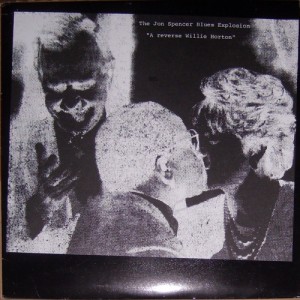| 8 April 2011 | CrawDaddy.com | – |
 |
|
| NOTES: | |
| Interview with Jon Spencer about the history of The Jon Spencer Blues Explosionfrom crawdaddy.com. | |
| ARTICLE TEXT: | |
|
Jon Spencer: Before and Beyond the Blues Explosion
While his brawny onstage persona certainly precedes him, Jon Spencer is, perhaps not surprisingly, a humble, organic dude with all the right artistic intentions. He is, contrary to his underground superstardom, reluctant to talk about himself, opting to allow his music to speak for him, which it does, and has for some 25 years. Spencer hails from the anti-rock star school of celebrity and would rather talk about anything but himself. Spencer’s career began back in the mid-‘80s with the seminal “hate-fuck” crew Pussy Galore, an unceremonious band with Ivy League roots. Primitive, crass, and poorly produced, they succeeded in bringing down every rock ‘n’ roll conceit that ever was, with an ugly deconstruction of post-punk and a penchant for the word “fuck.” Still, they recorded three albums and flamed out by 1990, quite smug in knowing they had made their point: That rock ‘n’ roll could still be pointless. Spencer formed the Blues Explosion in 1991 in New York City with musicians Judah Bauer and Russell Simins. Spencer disconnected his new act from his nastier roots and pulled the band into more diverse influences, like R&B, ’50s rock ‘n’ roll, blues, garage, and hip-hop. First heard officially on JSBXs self-titled debut in 1992, the band—with Bauer and Spencer on guitars and Simins on drums—careened through the ’90s refining its mélange of styles and creating an extraordinary new modern rock vibe. In the early ’90s, Spencer met, married, and formed a band with Cristina Martinez called Boss Hog, another super-hip, urban, art-rock exercise that was as provocative as it was inscrutable. Still, it was worthwhile for Spencer and Martinez; the band signed a major label contract and whooped it up for a spell on David Geffen’s dime. Spencer kept the Blues Explosion ball in the air throughout most of the ’90s, with acclaimed albums like Extra Width and Orange, juggling Boss Hog and parenthood as well. They slipped into a hiatus in 1998 after Acme, and nearly broke up the band, only to reconvene in 2002 with the quite accomplished Plastic Fang, and two years later, Damage. All of the JSBX albums have been reissued and remastered with bonus tracks. Also during the ’90s, as if he wasn’t busy enough, Spencer delved deeply into Mississippi blues, via the old school imprint, Fat Possum. He recorded with an array of old bluesmen, most significantly R.L. Burnside on the notable A Ass Pocket of Whiskey in 1996. Today, Spencer is still juggling life and labor. He now does time in a band called Heavy Trash, his collaboration with Matt Verta-Ray, while touring as time permits with the Blues Explosion. It took a while, due to his ample scheduling commitments, but Crawdaddy! eventually convinced him to take us on a trip through his backpages. Crawdaddy!: You’re incredibly busy these days, Jon. You have the Blues Explosion stuff, and then different lineups of Heavy Trash that are active, and both bands seem to be busy all over the place. Jon Spencer: Yeah, it’s a great thing, and I’m definitely not complaining. The scheduling is tough, because there are so many people involved, and I do it all myself. Are things planned out months in advance? Sometimes, but not usually. Recently, the Blues Explosion toured Australia for a few weeks; then we were home for less than a week. We had one practice in New York City then flew over to meet with our old friends, Powersolo, in Ghent, Belgium (from Copenhagen), to prepare for a Heavy Trash tour of Europe. We hadn’t played with this band in two years, but it came back pretty quick. Crawdaddy!: So talk to me about the different iterations of Heavy Trash. Spencer: We have a New York-based four-piece, we have the Danes, which is a five-piece, and there was an earlier version of Heavy Trash with the Scandinavian band Tremolo Beer Gut, and then there’s the Sadies, a Canadian band, which is a six-piece. With each band it’s a different kind of show, which is cool. It needs a little readjustment; one group can do one thing, but might not be able to do another. Powersolo didn’t know half the songs from Midnight Soul Serenade, the most recent Heavy Trash album. No big deal, though. I’m up for anything. Honestly, having these long relationships with a single band can be a bit much. Crawdaddy!: Let’s travel back a bit, to the beginning, when you were starting your career in Providence, Rhode Island. Spencer: I was at Brown University, a school I chose because there were no course requirements, and I thought it would be a good place to do some free and independent learning. Of course, I was wrong. The kids were still very career focused, and they had their eye on medical school and law school, like most other schools. Providence was in the grips of a “New Wave” hangover. It was a broken down city; everything was in the shadows. I was miserable in my own way. Music was the only thing I was excited about. I was at loose ends, not doing much of anything and I had reached the end of my rope. I definitely didn’t want to go back to school, so I decided to go to DC and start a band. Crawdaddy!: Did things turn around for you in DC? Spencer: I was still really angry, still in the throws of adolescence, confused and unhappy. But I got into art and bands and music, and it became my life. It was exciting, finding out about bands; before CDs, before the internet, everything was passed along by word-of-mouth. Friends would tell you about something really awesome and you’d go check it out, either see the band, or find them in the record store. It was exciting musically, but a shitty time in the country. There was a sense of desperation, as if anything could happen. Hardcore was also a big thing, which I sort of liked, but it wasn’t my favorite. The lesson there was if you wanted to have a band, start a band. Just do it! The DIY ethic really came to life. That was punk-rock. Crawdaddy!: The underground culture was beginning to form at the time, right? Spencer: Yeah, it was all just starting to come together. Underground bands rarely toured prior to this. They mainly stayed local, so for me to get out of there to meet bands, I had to go to these small scene cities with my own band. When we formed Pussy Galore and started touring, we got to meet so many bands. Those years, from 1985 to 1990, we felt very much a part of the underground scene. It started mainly in New York, but the scene spread all across the country. Crawdaddy!: The underground scene was really important to you. Spencer: Of course it was. It was everything to me at the time. I’ve always played in bands because I just love it, and I love this kind of music. Oftentimes people have written me off because they think I’m a joke, or some kind of a piss-take. And yeah, I admit that there’s a sense of play, some levity there, but it’s also got a sense of life, a charge of energy, which can be conflicting elements. But it’s not a joke. It’s always been very important to me, and very serious. Crawdaddy!: Have you ever made what you thought might be “a good career move?” Spencer: No, I’ve never really thought, “Oh, this is an important career step for me.” But what I do for a living is my career, and has been for 25 years as an artist and working musician. Still, I don’t think of it as far as a career or what’s best for business. I’m not going to let people fuck me over, and I’m not signing away my rights foolishly. There are some people who have tried to do this, especially after 1994 and 1995, when “alternative” exploded; people started waving money around at me. Crawdaddy!: Did you ever really consider that the music you made with Pussy Galore would be such a central influence to the alternative scene? Spencer: In 1987, in New York City, with bands like Honeymoon Killers, I didn’t feel like it was a really important thing that was happening. Like I said, it was important to me. I was in a band with my friends, and at the same time I was an incredibly immature, confused kid. What we were doing, I can look at it and see its value and its importance, and maybe how it had a ripple effect. With Pussy Galore, we made a local splash and influenced a lot of music, especially the Riot Grrrl thing here and in the UK. Crawdaddy!: So Pussy Galore started traveling across the country and the doors started opening. Spencer: Beginning to travel was a huge deal. We toured across America, and hit places like Chicago, Austin, Columbus, and played with bands at local VFW halls or punk rock dives. We shared the stage with our local equivalents, bands we read about, and we started making connections with like-minded musicians, crazy and creative people. It was also a blast because we’d find cool old amps, vintage shirts, and all the best record shops. There was really something going on. The corporate vultures hadn’t glommed onto it. You’d meet up and play with the freakiest bands from cities you didn’t know anything about. Crawdaddy!: What happened when the vultures did glom onto it, like they did in Seattle in the early 1990s? Spencer: There was a parade of knuckleheads in Seattle. You can read about it in Michael Azzerad’s book Our Band Is Your Life. There was a westward expansion into uncharted territory, laying the groundwork for commercial music. Of course, there was some good stuff going on at first. At Sub Pop, [co-founder] Bruce Pavitt was a total freak, and [co-founder] Jonathan Poneman were both great friends, great supporters. But it all just kind of caved in under the weight of it. The way I saw it, a lot of bands were just cashing out. Crawdaddy!: You and Cristina Martinez [Spencer’s wife] benefitted in that whole corporate takeover with her band Boss Hog. Spencer: I can’t deny that I didn’t benefit from it, that we didn’t benefit. Boss Hog did an album with Geffen. Cristina and I went out to LA to meet with David Geffen, which was a bit ridiculous when you think of it. But we were going to protect our own interests, so we were very careful about how we made the deal, and we really covered our asses. We had a great time making the record, and we ended up touring all over the world. Geffen helped us get out a little more than if we had stayed independent. In hindsight, I don’t look back on it in a bad way. Crawdaddy!: And the Blues Explosion was going on at the same time… Spencer: I was just doing my thing with Blues Explosion. With everything that was going on in the major labels, it helped us as well. The band got courted and they waved money at us, but there was no way that I could do it, no way. Ultimately, I knew it was our own sweat, getting out there and playing, that would win audiences. Crawdaddy!: So let’s talk about the Blues Explosion and how that band started gaining traction. Spencer: The Blues Explosion made three records very quickly, and four albums in about five years, in between touring with Boss Hog, and we toured Orange all over the world. Then we toured the Boss Hog record all over the world. We were really busy from 1994 to about 1997; we toured with the Beastie Boys and did some remixes. During this time, say about 1991 to 2000 we were pretty flat out. And our first child was born in 1997, which made it even tougher. Crawdaddy!: In your mind, how do you link Pussy Galore and the Blues Explosion style-wise? How did the blues become such a part of what you were doing? Spencer: It’s not like one day I was walking down the street and a light switch went off. The last Pussy Galore album had some rootsy sounds; it was phasing into the Blues Explosion. During that early period, I spent a lot of time with the Gibson Brothers, Jeff and Don, from Ohio. Growing up, I kept early rock ‘n’ roll at arm’s length, but they helped me embrace it. At the time, rock ‘n’ roll was so terrible, and that’s what Pussy Galore was a reaction to. I wanted to cherish it, support it, and carry it on. I guess it meant I had started to grow up because my outlook on rock ‘n’ roll, blues, and even country was changing. Crawdaddy!: You had a good relationship with Jeff and Don of the Gibsons. Spencer: We saw them in Columbus when we visited once, and I fell in love with them. They are one of my all-time favorite bands, and we became great friends. When they lost a couple of members, Cristina and I began to fill in. The core of that band’s sound was mainly about blues, with a little country. Initially, Jeff and Don turned me on to guys like R.L. Burnside and Junior Kimbrough. I actually owned some of those records. Then, when Fat Possum started its label, I knew these people and began to get those records, too. I heard R.L.’s album Too Bad Jim and really loved it. I thought, “How great would it be to play some shows with this guy?” It took a while to meet up with him, but we hit it off, and the whole thing started rolling in ’96 with A Ass Pocket of Whiskey. Crawdaddy!: What impact did playing with these blues legends have on you? Spencer: The time we spent with R.L. and Cedell Davis touring and playing around was the highlight of the Jon Spencer Blues Explosion. It was such an amazing thing to be a living link to a whole different world. Judah [Bauer, guitarist] spent a lot of time learning specific guitar skills from those guys, which is all over our ’96 album, Now I Got Worry. There was bluesy stuff going on back then—Cramps, the Gun Club, back in the old days—and we felt like we fit into that whole idea. I’m a big fan of garage-punk, which is essentially blues, only noisier. Crawdaddy!: Things got quiet for a while. You mentioned starting a family. Did you ever consider calling it quits? Spencer: We took a break around 2000. We did Plastic Thang and Damage and took a long break. At one point, I really had made up my mind that I didn’t want to do this anymore. I can’t lie about that. I told Judah and Russell [Simmins, drummer] that we were probably done. Crawdaddy!: What was it like putting together the reissues? You strike me as someone who’d rather look to the future than to the past. Spencer: It was a huge job. And, no, at first I didn’t want to get into it. But once I got rolling I became obsessed. One problem is that I don’t have a very good memory, so I’d find something—a photo, a document, a tape—and not remember where it was from. The whole thing was like a jigsaw puzzle. I wasn’t psyched about doing this project, and the liner notes got uncomfortable, too. As you can tell, it’s not always easy for me to talk about my own history. I was struck by how much material there was. We were a damn busy band! I wanted to throw in everything but the kitchen sink, be as complete as possible. I wasn’t critiquing it; I wanted to put everything out there for the fans. For me, it was always about the original seven albums. The reissues have been interesting and are fun to listen to, but nothing will ever equal the original projects and the work we did to create them. Crawdaddy!: Now you can move on, and the band’s back together, too. Spencer: I’m glad they’re done. And now that the band is playing, all of a sudden we’ve become a living thing again. We have tours coming up; we’ve written some new songs. We get along now. Like with any band, there have been some rough moments; it’s not easy to be in a band. Growing up, I thought being in a band would be like the Monkees, ya know? It was happy-go-lucky party time. But it’s a relationship, and it’s not always easy. We’ve grown over the years, had families, and accumulated experience, kind of like moss. Crawdaddy!: Have you, dare I say it, “matured?” Spencer: I’m not crazy about sitting in a van for seven hours or hanging out in a motel room. But I still really enjoy playing and performing. It’s still satisfying and something I want to do. There’s a great unconscious thing that compels me to keep doing it. A lot of people over the years have dropped out or stopped, but they wanted to. There’s not the same kind of money there used to be. Nobody’s handing me a big check to make a record like they used to, which I definitely miss. But I feel lucky and thankful that I still can do what I’m doing. |


![Freedom Tower: No Wave Dance Party 2015 [Green Vinyl] (LP, UK)](http://www.pop-catastrophe.co.uk/wp-content/uploads/2015/01/freeuk-300x300.jpg)
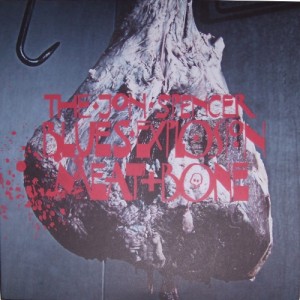
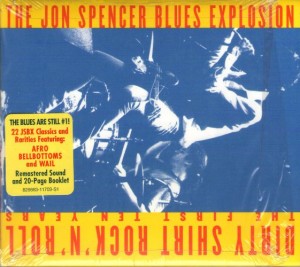
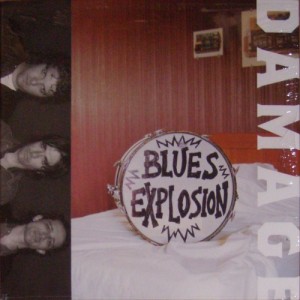
![Plastic Fang [Fang Pack] (CD, UK)](http://www.pop-catastrophe.co.uk/wp-content/uploads/2012/11/img9881-237x300.jpg)
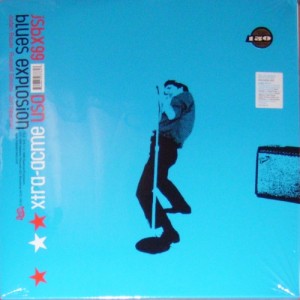
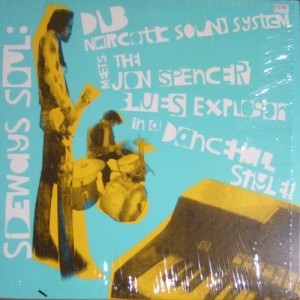
![Acme + Acme Plus [2010] (2xCD, US)](http://www.pop-catastrophe.co.uk/wp-content/uploads/2012/11/img041-300x272.jpg)
![Controversial Negro [2010] (CD, US)](http://www.pop-catastrophe.co.uk/wp-content/uploads/2012/10/img996-300x265.jpg)
![Now I Got Worry [2010] (CD, US)](http://www.pop-catastrophe.co.uk/wp-content/uploads/2012/11/img1541-300x267.jpg)
![Experimental Remixes [2000] (2xLP, UK)](http://www.pop-catastrophe.co.uk/wp-content/uploads/2013/08/1cDSC01688-300x300.jpg)
![Orange + Experimental Remixes [2010] (2xCD, US)](http://www.pop-catastrophe.co.uk/wp-content/uploads/2012/09/img884c-300x269.jpg)
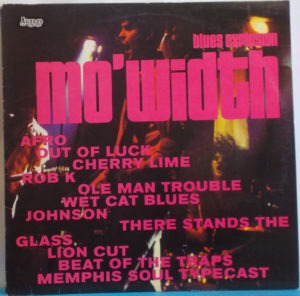
![Extra Width + Mo’ Width [2010] (2xCD, US)](http://www.pop-catastrophe.co.uk/wp-content/uploads/2012/10/img041c-300x264.jpg)
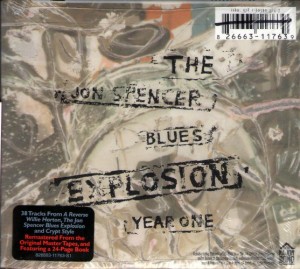
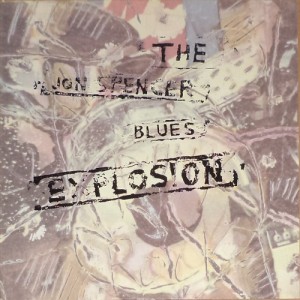
![Crypt Style [Alt. Label Design] (LP, GERMANY)](http://www.pop-catastrophe.co.uk/wp-content/uploads/2013/07/1cDSC01619-300x300.jpg)
